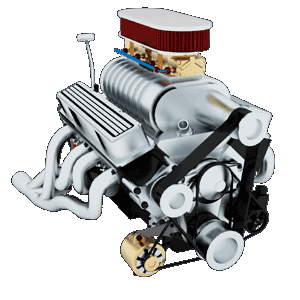What is Sustainability?
Sustainability is defined as a product or service which meets the needs of the present without compromising the ability of future generations to meet their own needs.
How is Sustainability Measured?
Sustainability is measured by the environmental, economic, and social impacts over the life cycle of the product or service. Environmental impacts include hazardous discharges, greenhouse gas emissions, use of non-renewable resources, and the amount of energy consumed. Economic impacts include the direct and indirect financial costs associated with the product or service. Social impacts include whether or not the product or service disproportionately impacts one or more sectors of the population and whether the production, use, and disposal of the product or service conform to community norms and national objectives.
Why Does Sustainability Require Life Cycle Analysis?
Life Cycle Analysis (“LCA”) provides a complete evaluation of the environmental, economic, and social impacts of a product or service over the life cycle of the product.Often, the initial cost of a product or service may be higher, but over the life cycle of the product or service the overall cost may be less. For example, a hybrid bus has a higher initial cost than a diesel-powered bus of the same size, but over the life cycle of the vehicle, the lower operating cost of the hybrid bus results in an overall lower life cycle financial cost. In addition, the hybrid bus will produce fewer greenhouse gas emissions,conserve non-renewable fossil fuels, and reduce the consumption of foreign petroleum products, a national objective.
How Can Engine Lubrication Become More Sustainable?
To improve sustainable lubrication requires using less lubricating oil. To accomplish this, oil drain intervals must be extended. This requires good oil chemistry and better dynamic filtration.
Do Modern Lubricating Oil Formulations Support Sustainability?
Yes. The chemical formulations of modern crankcase lubricating oils designed for diesel, gasoline, and natural-gas engines have improved dramatically in the last several decades. In particular, diesel oil has improved significantly. The current American Petroleum Institute (API) specification, API CJ-4, is a sustainable oil formulation. It is designed to be used with the new EPA fuel standards and the Ultra Low Sulfur Diesel (ULSD) fuel, which is a cleaner burning diesel fuel containing a maximum of 15 parts-per-million (ppm) sulfur. When ULSD fuel is used in combination with cleaner burning diesel engines, the ULSD fuel will improve air quality by significantly reducing emissions. Since December 1, 2010, ULSD fuel has been mandatory when sold for highway use.
CJ-4 also is designed for use in the advanced Exhaust Gas Recrimination (“EGR”) engines, which produce high levels of diesel soot. CJ-4 keeps oxidation levels and viscosity levels within range longer than the older oil formulations. CJ-4 also is backward compatible with older, on-road diesel engines, which are using ULSD oil. Older oil formulations, API CD (1955), CE (1985), CF (1994) or CG-4 (1995), do not support sustainable lubrication. They do not meet the 1998 and newer exhaust emission engine standard and are not suitable for use with ULSD fuel.
Do Full-Flow Filters Support Sustainability?
No. Even the most chemically advanced lubricating oils cannot remove the hard physical particles in the oil film. Dynamic filtration is required to keep engine oil clean; however, full-flow filers do not remove micro-grit, small particles that cause the majority of engine wear. While there have been major advancements in lubricating oil formulations, in modern engines crankcase filtration efficiency is essentially the same as the days of old CD and CE oil formulations. Filtration efficiency has not kept pace with advances in lubricating oils.
How Can Sustainable Lubrication be Achieved?
Lubrication, while vital, has two major negative impacts; it creates significant amounts of hazardous waste and consumes fossil-based petroleum oil. By reducing the amount of lubricating oil used in an engine each year, sustainability will be improved. For example, if a transit fleet has a 6,000-mile oil drain interval, to reduce the hazardous waste oil by 50% and conserve 50% more petroleum-based lubricating oil, the oil drain interval must be doubled from 6,000 miles to 12,000 miles, while maintaining oil chemistry and keeping particle contamination at or below the level of oil at 6,000 miles, as measured by the oil’s ISO Code levels.
What Impact do Greenhouse Gases Have on Global Warming?
The Intergovernmental Panel on Climate Change (IPCC) reports that most of the global warming of the Earth’s atmosphere observed since the mid-20th century has been caused by human-created increases in greenhouse gases, especially carbon dioxide (CO2). Burning fossil fuels accounts for about 75% of the increase in CO2 over the past twenty years, such as the fossil fuels burned by automobiles, trucks, buses, aircraft, and etc.



